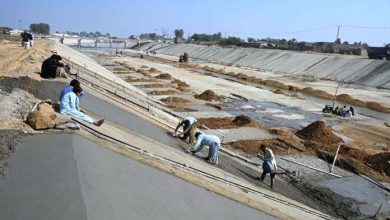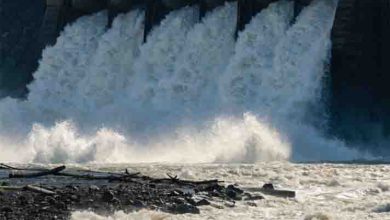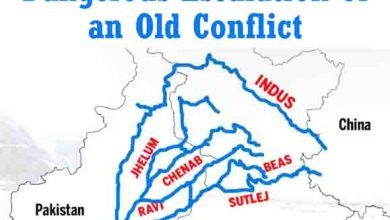Shocking Setback: India Declares Indus Waters Treaty With Pakistan Will Never Be Restored
India has officially declared that it will never restore the Indus Waters Treaty with Pakistan. This historic shift could severely impact Pakistan’s agriculture. Learn more about the geopolitical and environmental implications.
The Indus Waters Treaty, long hailed as a rare symbol of cooperation between two bitter rivals, has entered a phase of irreversible collapse. On Saturday, Indian Home Minister Amit Shah emphatically declared in an interview that India will never restore the Indus Waters Treaty with Pakistan, a decision that threatens to upend regional stability and agricultural lifelines in Pakistan.
This announcement carries a shocking blow to international norms and bilateral agreements, raising alarms among geopolitical analysts, environmentalists, and millions of farmers relying on the rivers.
Historic Background of the Indus Waters Treaty
Signed in 1960 and brokered by the World Bank, the Indus Waters Treaty is a water-sharing agreement between India and Pakistan. It grants Pakistan control over the three western rivers—Indus, Jhelum, and Chenab—while India retained rights over the three eastern rivers—Ravi, Beas, and Sutlej.
This historic accord provided water to over 80% of Pakistan’s agricultural lands, fueling food production and livelihoods for millions.
Despite multiple wars and skirmishes, the treaty endured for over six decades, symbolizing a rare success in conflict management between two nuclear powers.
India’s Reason for Halting Participation
India’s suspension of participation in the treaty followed a deadly attack in Indian-administered Kashmir, where 26 civilians lost their lives. India blamed Pakistan-based militants for the incident—a claim Pakistan has strongly denied.
Delhi reacted by putting the treaty “in abeyance,” suggesting a diplomatic pause rather than outright termination. However, Shah’s recent comments mark a decisive shift from ambiguity to certainty.
“No, it will never be restored,” Shah said during the Times of India interview.
India’s move appears aligned with broader strategic shifts and domestic water needs, especially in arid regions like Rajasthan, where the government plans to divert water previously flowing to Pakistan.
Amit Shah’s Bold Remarks on the Treaty
Amit Shah, known as Prime Minister Narendra Modi’s most powerful cabinet member, did not mince words when discussing the future of the treaty:
“We will take water that was flowing to Pakistan to Rajasthan by constructing a canal. Pakistan will be starved of water that it has been getting unjustifiably,” he asserted.
This statement underscores a hardline nationalist approach that may resonate with domestic audiences but significantly escalates tensions with Islamabad.
External Source: Times of India Interview with Amit Shah (Dofollow)
Impact on Pakistan’s Agriculture and Water Access
If India proceeds with diverting river waters, Pakistan could face a catastrophic water crisis. With over 90% of its food production dependent on irrigation from the Indus Basin, the consequences could include:
- Decline in wheat and rice output
- Food insecurity and rising prices
- Socioeconomic displacement in rural communities
- Escalation in water-borne disputes and conflict risks
Internal Link: Read: Pakistan’s Climate Vulnerability and Food Crisis
Pakistan’s Legal and Diplomatic Response
Islamabad has consistently argued that the Indus Waters Treaty cannot be unilaterally suspended and that doing so would violate international law.
“Any blocking of river water flowing to Pakistan will be considered an act of war,” the Foreign Ministry of Pakistan had previously warned.
Now, the government is reportedly considering legal recourse at international forums, including the International Court of Justice (ICJ) and the Permanent Court of Arbitration (PCA).
Pakistan has also approached the World Bank, a key party to the original agreement, for dispute resolution.
Regional Stability and Future of Water Diplomacy
The abeyance of the Indus Waters Treaty may usher in a dangerous precedent in South Asia. With climate change exacerbating water scarcity, the loss of a functional treaty between India and Pakistan could fuel:
- Border tensions
- Cross-border migration due to water shortages
- Increased militarization along river boundaries
- Collapse of other bilateral cooperation platforms
Experts urge the international community to mediate immediately, warning that weaponizing water may trigger an uncontrollable regional crisis.
External Resource: World Bank’s Role in Indus Waters Treaty
Conclusion: A Treaty in Turmoil
The formal announcement that India will never restore the Indus Waters Treaty with Pakistan marks a historic rupture in South Asian diplomacy. While India cites national security and water sovereignty, the move could devastate millions of Pakistani farmers and plunge the region into prolonged instability.
For now, the focus shifts to international legal corridors, water-sharing diplomacy, and public pressure from both nations to prevent a total collapse of one of the world’s most enduring peace-time agreements.







